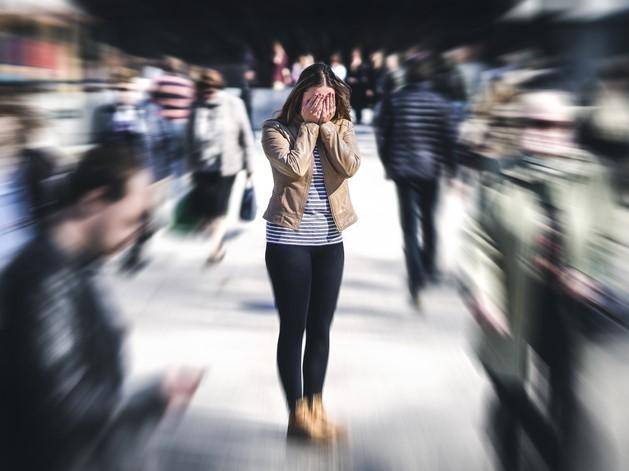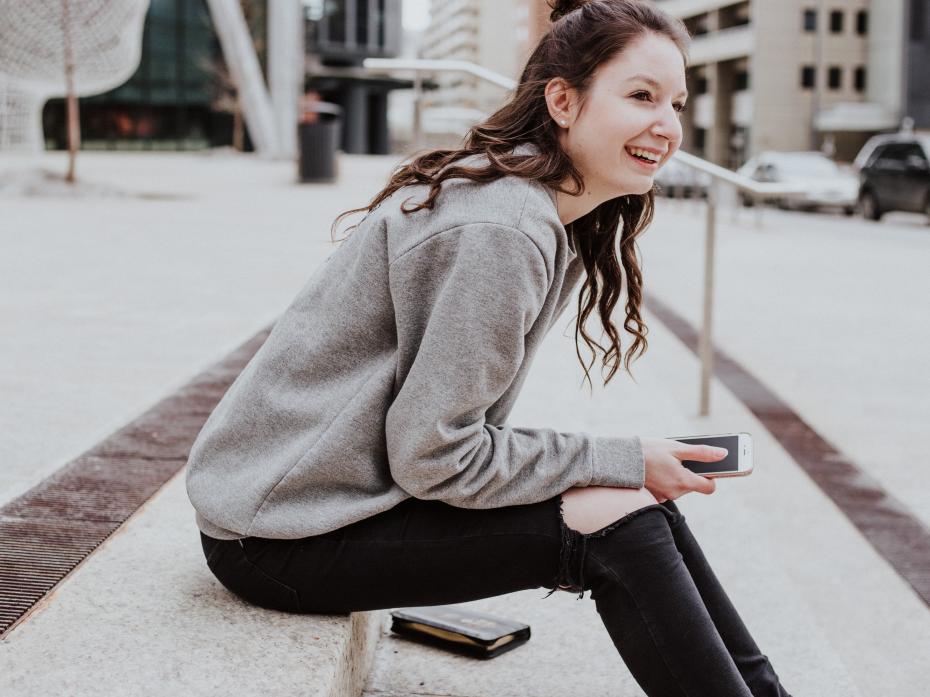I recently returned from my first in-person conference in 16 months. Connecting with like-minded colleagues in person was an indescribable joy. And it was also weird. Very weird.
It wasn’t just me. Everyone I talked to expressed feeling grateful to interact with fully embodied people. At the same time, we felt uncomfortable to varying degrees about being in physical proximity to one another. We all handled this in different ways. Some almost unconsciously took a step back from whomever they were speaking with to increase the distance. Many others nervously laughed, saying how odd it was to be near other people. All of us felt we were off our teaching and presenting game.
This led me to double down on my feeling that returning to the classroom will be tough. We should prepare accordingly.
As I led my three-hour workshop, I felt nerves like I hadn’t experienced since I was new in the classroom 25 years ago. Heart pounding, dry mouth, unable to find my presenting groove − though I hoped the participants didn’t notice. Other presenters told me they had the same experience.
What was so challenging about being back in physical learning spaces? Basically, I was rusty. But it’s also more than that. Out of practice, sure. But also traumatised by living through a global pandemic. Still discovering psychological wounds, scars left by so much collective pain, loss, grief, anxiety. This has been a taxing time, and it’s taken its toll on us, personally and professionally.
At this conference, faculty were like the walking wounded. Exhausted, yet trying not to show it. Grateful, yet uncertain about once-familiar social norms. Happy, yet experiencing a hard-to-define unease. It was at once satisfying and deeply unsettling.
The root cause of all this malaise is complex. We now know a lot more about how particles circulate when we’re breathing the same air. We understand that people have strong feelings, even visceral reactions, about their willingness to be with others indoors. We deeply desire to respect others’ preferences while experiencing an equally strong desire to satisfy our own longing to connect in real life (as opposed to connecting in the Zoomisphere, as plenary speaker Courtney Plotts called it). These contradictory feelings and thoughts caused me, and I suspect many others at this conference, to return home disquieted by our experience there.
But we can learn from our early forays back into real life, and we should. Our students deserve our best selves. So what can we do to prepare for a return to the classroom?
First, and most importantly, we must acknowledge the weirdness. We must admit to ourselves that we are not OK. That this has not been OK. That we will need time to adjust to being physically close to other people again.
Ideally, our colleges and universities will carve out that time, will enact systems and structures that provide breathing space. But speaking of breath, I’m not holding mine. I’m a realist. For valid reasons, I think it’s unlikely that we’ll be given the time and space to ease back into in-person teaching. I know many schools are planning a slow return to in-person, with more classes this autumn taking place in online formats. But still. Returning to in-person anything feels both good and weird. I prefer to focus on what we can do as individuals to acknowledge our wounds and plan accordingly. To take steps that are within our control.
So, what does that look like?
Again, first is to acknowledge the trauma. Next is to give ourselves grace. Repeatedly. For everything. Teaching in person will feel odd if you haven’t done it in over a year. So will chatting with colleagues in the hallway. There’s a lot of asking people: “Am I standing too close? Are you OK with this?” We need to plan time to ask these questions and adjust accordingly, and plan processing time to recover from the fatigue this causes, too. These careful negotiations in which we are hyper-sensitive to other people’s feelings are draining. We should plan recovery time in order to practise good self-care.
Another strategy is to defer whatever can be deferred at work or home. Many of my writing projects were delayed by the pandemic. So were lots of home-improvement projects. And yet they all got done eventually (or are getting done). I developed a newly Zen-like acceptance of things that were beyond my control, an ability to let go of personal and professional deadlines. Maybe I’m developing what Simon Sinek calls an infinite mindset: I’m coming to terms with the idea of making some progress even if I’m not achieving everything my driven personality has always said I needed to.
Finally, be prepared to extend abundant compassion and grace to your colleagues and your students. We never know what someone else is dealing with. That’s always been true, but now it’s truer than ever, on a global scale. Covid-19 has shown me the importance of respecting people’s preferences and comfort levels and the fact that we are all dealing with anxieties of some kind or another. Respecting where others are on their personal post-pandemic journey, without judgement, will go a long way to helping us reacclimatise to real life.
Let’s resolve to be kind. Understanding. Forgiving. Of ourselves, our students and our peers. Our transition back to pre-Covid routines and schedules will go better if we do.
Flower Darby is a scholar of equitable and inclusive teaching and learning at Northern Arizona University. She is the author, with James M. Lang, of Small Teaching Online: Applying Learning Science in Online Classes.




comment